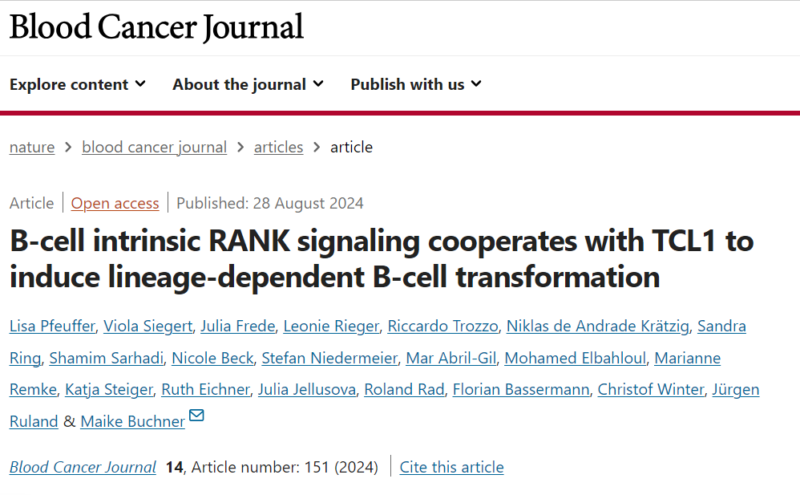
Myeloma Paper of the Day, September 10th, suggested by Robert Orlowski
Robert Orlowski shared on X:
“Myeloma Paper of the Day: B-cell intrinsic RANK signaling cooperates with TCL1 to induce lineage-dependent B-cell transformation and inhibiting RANK signaling can reduce myeloma progression in a xenotransplantation model.”
Source: Robert Orlowski/X
Authors: Lisa Pfeuffer, Viola Siegert, Julia Frede, Leonie Rieger, Riccardo Trozzo, Niklas de Andrade Krätzig, Sandra Ring, Shamim Sarhadi, Nicole Beck, Stefan Niedermeier, Mar Abril-Gil, Mohamed Elbahloul, Marianne Remke, Katja Steiger, Ruth Eichner, Julia Jellusova, Roland Rad, Florian Bassermann, Christof Winter, Jürgen Ruland and Maike Buchner.

Other posts featuring Robert Orlowski on OncoDaily.
Robert Orlowski, M.D., Ph.D., holds multiple positions at The University of Texas MD Anderson Cancer Center, including Chairman, Ad Interim Director of Myeloma, and Professor of Medicine in the Departments of Lymphoma/Myeloma and Experimental Therapeutics within the Division of Cancer Medicine. Additionally, he chairs the SWOG Barlogie/Salmon Myeloma Committee, which is part of the National Clinical Trials Network, dedicated to advancing new therapies and understanding the biology of myeloma.
Dr. Orlowski’s expertise lies in both clinical practice and scientific research, with a particular focus on translating laboratory discoveries into effective treatments for patients. He investigates drug resistance mechanisms in myeloma and seeks to identify predictive biomarkers for treatment response. Notably, his past contributions include leadership roles in developing proteasome inhibitors like bortezomib and carfilzomib, as well as monoclonal antibodies such as daratumumab and elotuzumab.
-
Challenging the Status Quo in Colorectal Cancer 2024
December 6-8, 2024
-
ESMO 2024 Congress
September 13-17, 2024
-
ASCO Annual Meeting
May 30 - June 4, 2024
-
Yvonne Award 2024
May 31, 2024
-
OncoThon 2024, Online
Feb. 15, 2024
-
Global Summit on War & Cancer 2023, Online
Dec. 14-16, 2023
